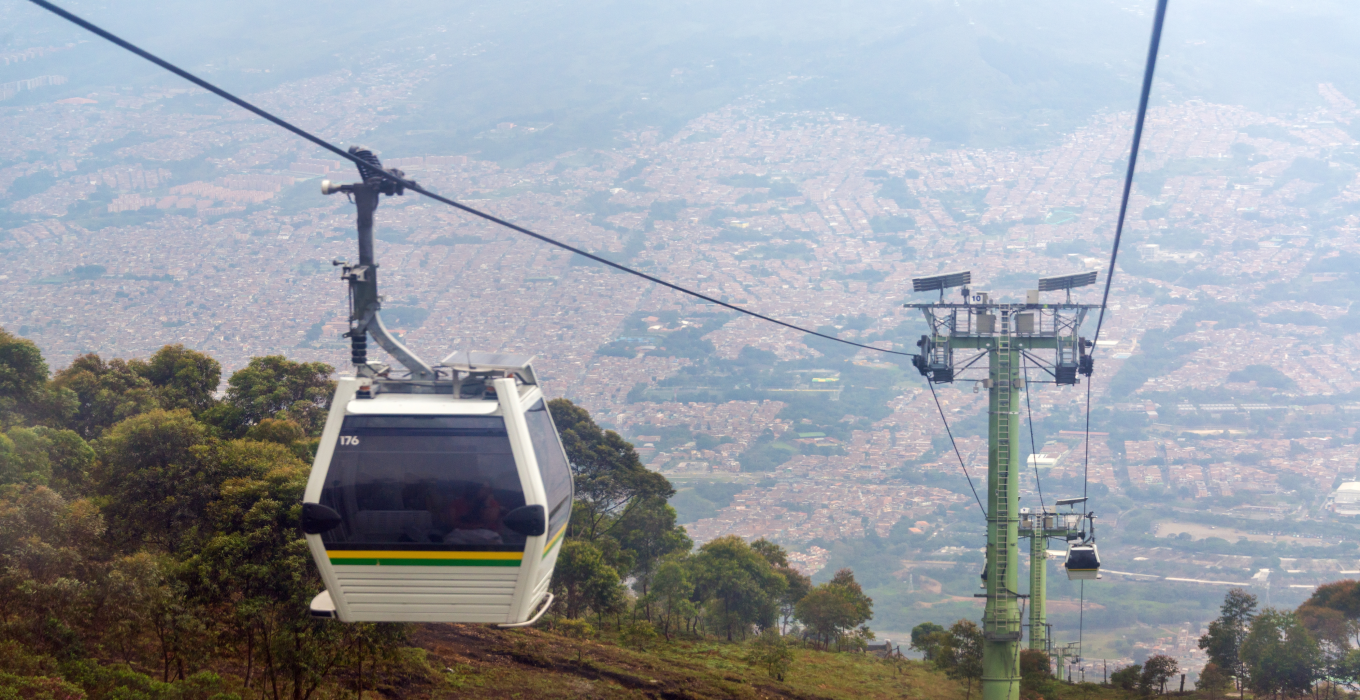The Salvadoran government is seeking a loan of more than $238 million from the Inter-American Development Bank (IDB) to implement cable cars in the Metropolitan Area of San Salvador (AMSS), reveals preliminary information published by the multilateral organization on its website.
Publicly available details are scarce. On its portal, the IDB indicates that the project is currently in the preparation stage, meaning it has not yet reached the negotiation and approval stage. It also reports that El Salvador seeks an investment loan amounting to $238,438,609 for a “Cable Car Program in the Metropolitan Area of San Salvador (AMSS).”
According to the bank’s description, the general objective of the program “is to improve social inclusion and productivity, providing greater accessibility to peripheral populations of the Metropolitan Area of San Salvador (AMSS). The specific objective is to contribute to the improvement of the quality of urban and tourist public transport.”
The project is classified within the transport subsector, which includes “buses, trains, cable traction vehicles,” as well as “infrastructure and equipment,” but there is still no information on the components that the program would have.
“We are not only analyzing the main lines of the transport system (…), but also the feeder lines. In this case, the cable car is a possibility.”
— Romeo Rodriguez, Minister of Public Works, in a radio interview on October 5, 2022
Regarding the environmental and social impact category, the multilateral organization indicates that “it is likely to cause mainly local and short-term negative environmental impacts, for which effective mitigation measures are available.”
LA PRENSA GRÁFICA requested information from the IDB, such as the date the project began, whether it includes the construction of cable car lines, what actions are being carried out in the preparation stage, and how long it could take from this phase until approval. However, the bank limited its response to saying that “the project in question is still in preparation and (…) is currently in the preliminary stage of internal assessment at the IDB.”
Little Information on the Cable Car Project
This newspaper also sought details of the initiative with the Ministry of Public Works (MOP), but at the close of this note, no response was received. At least since 2022, this state agency has publicly mentioned its intentions to introduce cable car-type transport in the country, similar to Mexico or Colombia, and has even commissioned feasibility studies to carry it out, although to date it has not reported the results of these analyses.
In May 2022, at the European Union Investment Forum, the Spanish consultancy INTECSA-INARSA revealed that they had already identified two possible lines, one of almost seven kilometers and four stations in El Boqueron, and another of eight kilometers and two stations in Los Planes de Renderos. In September of that year, the MOP and the company published an announcement in newspapers where they reported that they were developing “the feasibility and Preliminary Specific PAR” of those lines.
“It will involve many affected services (…). The routes of the new system will require certain expropriations, and it is necessary to know whether they are possible or not.”
— José Miguel Macias, INTECSA-INARSA Consultant, at the European Union Investment Forum, May 2022
During the forum with the European Union, the consultancy also assured that the concept pursued by the MOP was the same as that implemented in Medellín, Colombia. In addition, they revealed that the plan included three metro lines, one “more metropolitan” and two others connecting areas such as the districts of Colón or San Martín, totaling 45 kilometers and 38 stations.
In December last year, the MOP signed a letter of intent with the Indian company Lakshmi Capital to develop a metro in El Salvador, but this information was known through publications on the social networks of the Asian country’s embassy in Guatemala, where Minister Romeo Rodríguez traveled to seal the agreement. Last April, the diplomatic headquarters also reported that the state agency signed another agreement with the same company for the purchase of 5,000 buses.
“The project in question is still in preparation, and we can inform you that it is currently in the preliminary stage of internal assessment at the IDB.”
— IDB Communications Office, May 23, 2024
Transportation entrepreneurs also said they did not know about the intentions to introduce cable cars in the country. “On that particular issue, we know nothing,” said Lucio Vásquez, from the National Transportation Table (MNT).
Under anonymity, two transporters said they only had the information that was known in 2022 about the possible lines in El Boqueron and Planes de Renderos. “We know about the cable car project, but vaguely, we have no information,” said one of them.
“Yes, I know there is a project being developed by the Spaniards, a cable car that goes from the Escalón (neighborhood) to the San Salvador volcano and from San Jacinto to Los Planes de Renderos. That’s all we know,” added the other entrepreneur.
On its website, the IDB has also published the details of a non-reimbursable technical cooperation of $14,880 for the MOP to exchange knowledge with Mi Bus, the main mobility company in Panama.
Gobierno busca crédito con el BID para metrocables en el gran San Salvador

